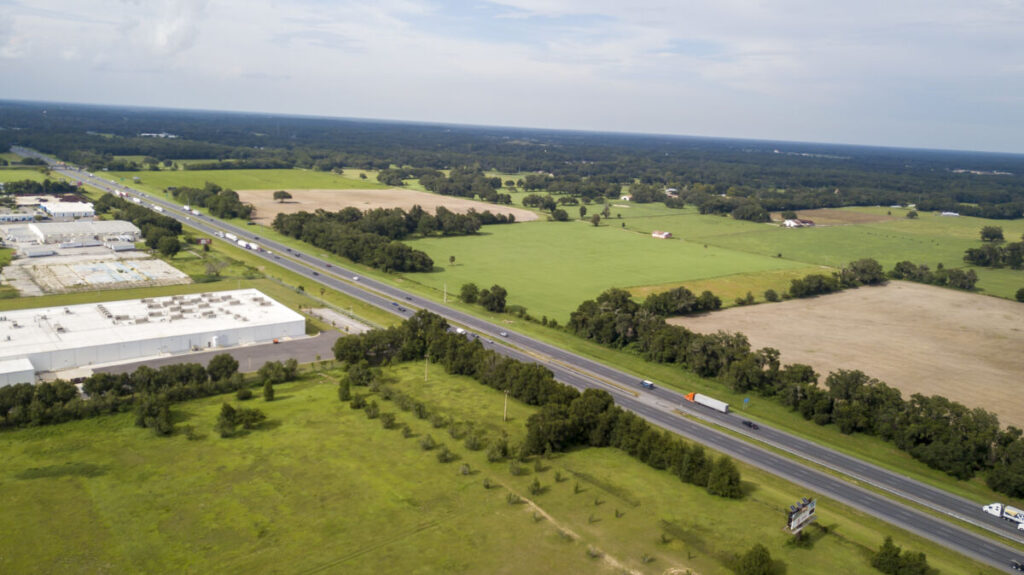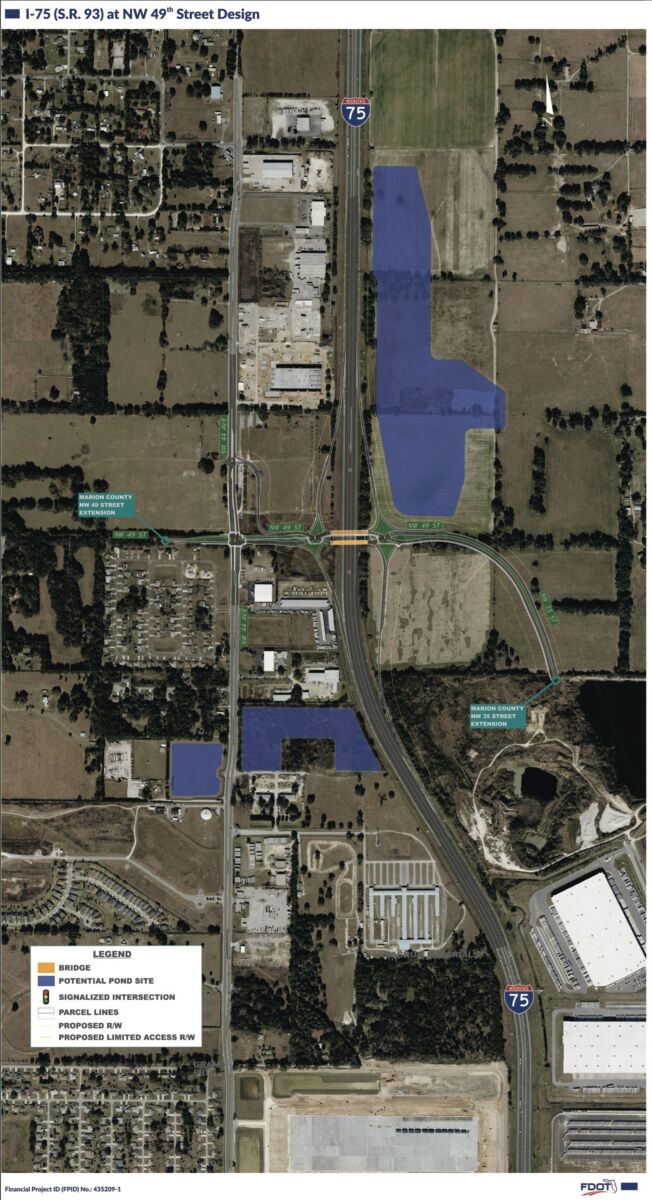Zoning change approved for Baldwin Angus Ranch to expand
Family hopes to continue cattle ranching legacy despite sale to Buc-ee’s and future I-75 interchange

Land on the east side of I-75, shown on the right, is the area were the new Buc-ee’s will be built along with the 49th Street off ramp. It is shown Tuesday, July 25, 2023, in Ocala, [Alan Youngblood/Special to the Ocala Gazette]
Marion County commissioners approved a rezoning request this week that will allow owners of the Baldwin Angus Ranch to use a plot of farmland for agricultural purposes, which the family says is essential for keeping their longtime cattle business alive as massive development continues to surround them.
Despite county staff’s recommendation to deny the zoning change, commissioners were persuaded by pleas from Baldwin family members to be allowed to use the land for raising cattle.
“We’re trying to expand so we can keep running our cattle, so that’s what we’re going to do,” said Joy Baldwin Papy, daughter of the family’s late patriarch, Leroy Baldwin.
Leroy Baldwin started the ranch in 1947 with just a few Angus heifers and eventually bought 40 acres of land west of Interstate 75 and Northwest 49th Street. At its height, the farm spanned about 640 acres.
Now, 77 years later, an interchange at I-75 is scheduled to be built right through the Baldwin land. That project forced the family to sell the landlocked portion of their property to the Buc-ee’s convenience superstore and gas station chain.
“Yes, we sold to Buc-ee’s, but (the parcel) was landlocked,” said Papy. “What are you going to do, helicopter cows in? So we sold to Buc-ee’s, and that helped our cattle business in the best way, by making it live. It’s just to get by.”
The I-75 interchange project is expected to start construction in 2025. Once the interchange is built, Buc-ee’s plans to build an 85,000-square-foot travel center, including 800 parking spaces, 120 gas pumps, indoor and outdoor retail, and food and beverage services.

A map depicts the planned interchange on Interstate 75 and 49th Street in Marion County. In blue, the outline for a potential retention pond east of I-75 and north of the future Buc-ee’s Ocala location is shown [Courtesy of the Florida Department of Transportation].
The Baldwins bought the parcel, located at 3221 NW 56th St., in 2023. The property is valued at $557,970, according to the Marion County Property Appraiser’s office.
In January, the family filed an application with the county to change the property’s zoning from Multiple Family Dwelling (R-3) to General Agriculture (A-1), so the next generation of Baldwincattle ranchers can put a trailer on the land so family members can stay on the property and continue to run cattle.
Papy’s niece Amanda Baldwin has a 16-year-old daughter who wants to carry on the family legacy, and she has steers on the land to do show cattle. Without the zoning change, she would have had to continue running back and forth from town every day to feed the cattle, Papy said.
“We’re not trying to make a mobile home park. We’re not trying to make a subdivision. We want to run cattle and have a mobile home right on the edge,” Papy said.
County staff recommended that the Marion County Commission deny the zoning change request, due to its close proximity to the Ocala/Marion County Commerce Park, which holds distribution centers for Amazon, Chewy, FedEx, AutoZone and more. The parcel is also classified under the Employment Center land use and falls within the Urban Growth Boundary.
“You’d essentially be downzoning and not taking advantage of an opportunity we have to fill some of those gaps in housing that we currently suffer with,” said Kathleen Brugnoli from the county’s Growth Services department.
Brugnoli suggested to the board that this land could instead be used for a development to create housing for the nearby employment hubs if the Baldwins would sell the land to builders.
“If it were to remain R-3, it would give a better opportunity for some multifamily housing,” Brugnoli said.
“It’s our property. We’re not going to sell for housing,” said Papy. “We want to stay ranching. We want to stay in the cattle business.”





